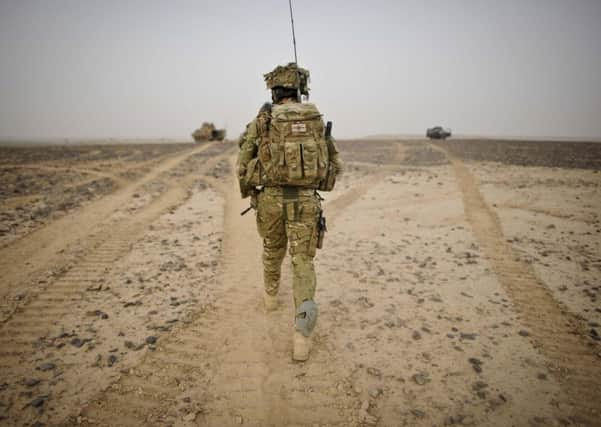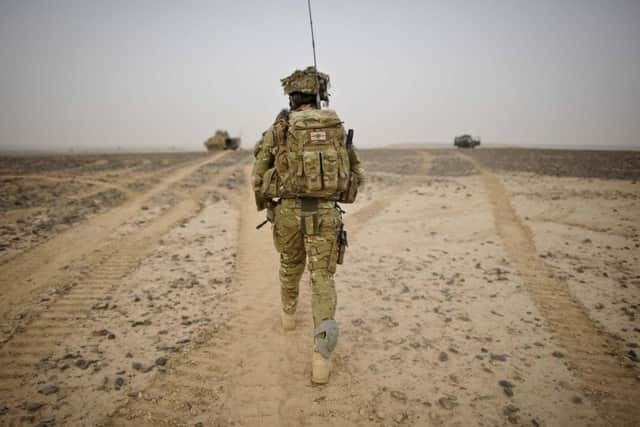Rate of mental health problems among troops and veterans doubles in a decade


The warning has made in a report by MPs which calls on the Ministry of Defence (MoD) to do more to make sure former soldiers are not “falling through the gaps” in NHS care.
The House of Commons Defence Committee found particularly high levels of mental health issues among those who served in Afghanistan or Iraq.
Advertisement
Hide AdAdvertisement
Hide AdOfficial figures showed that overall, 3.1 per cent of serving personnel are diagnosed with mental health conditions, twice the proportion seen in 2008-09.


But the committee said the number with conditions such as post-traumatic stress disorder (PTSD) or depression could be three times higher, at about 10 per cent, and some may not seek help because of stigma surrounding mental health.
Defence Committee member Ruth Smeeth MP said: “If they are already receiving support for mental health issues while serving, they must receive what they need as they move into NHS care.
“Yet, clearly, some leavers are falling through the gaps and the MoD needs to do much better in working with health economies across the UK to stop this from happening.”
Advertisement
Hide AdAdvertisement
Hide AdThe report found that “it is still taking too long for veterans to access treatment when they need it, and levels of care vary across the UK”. Deployment to combat in Iraq or Afghanistan “increased the likelihood” of mental health conditions. A 2014 study found PTSD levels of 6.9 per cent among regular troops and six per cent among reservists.
Other groups more vulnerable to mental health problems included female personnel, those who leave the service early and those recruited below the age of 18. The report warns of veterans facing increased stigma because of “distorted” public perceptions.
The committee said it was “harmful” to think that most are damaged by their experience, saying the vast majority leave with no mental health problems. It said too much attention may be being paid to PTSD when conditions like depression are more common.
The report raised concerns over the recording of veteran suicides. Evidence suggests the rate is no higher than among the general population, but the MoD should ensure that military service is recorded as part of inquests, said the MPs.
Advertisement
Hide AdAdvertisement
Hide AdCarol Smith, of the charity Combat Stress, said it had seen a 97 per cent increase in the number of veterans seeking help, particularly from those who served in Afghanistan and Iraq.
A Ministry of Defence spokesman said: “The MOD is working to raise awareness for mental health issues within the Armed Forces community. Our Defence People Mental Health and Wellbeing Strategy is aimed at tackling the stigma around mental illness.”
The Government faced calls for an urgent review into how the deaths of military veterans are recorded following a three-month investigation by The Yorkshire Post.
It emerged that the Ministry of Defence (MoD) did not know if suicides among veterans had increased because it did not record the information.
Advertisement
Hide AdAdvertisement
Hide AdThe investigation, launched to find out if suicides were increasing, identified 16 people who have taken their own lives since January.
Seven are known to have served overseas in Iraq and Afghanistan, two were Special Forces and five were former Royal Marines. None of their deaths had been recorded as military suicides.